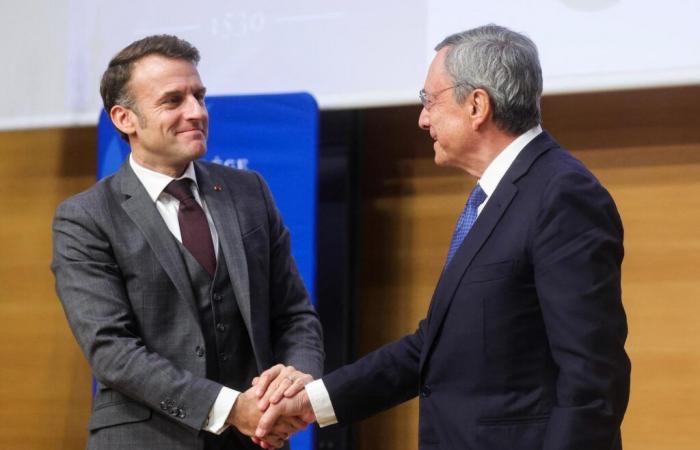
Dfor several months, the debate on the delay in European competitiveness compared to the United States and China has been growing. It was launched by the report of Mario Draghi, the former president of the European Central Bank. Submitted to the European Commission in September, it alerts of a situation of “slow agony” for the continent. Europe is dropping out, but France is looking elsewhere. This subject, to which The World devoted a series of articles in mid-December, remains confined, in our country, to conferences and forums in the media. The political parties, bogged down in the political crisis, are struggling to tackle the issue.
Find all the episodes of the series “Europe is dropping out”
See more See less
The challenge of the Draghi report consists of creating awareness of the fragilities of the European model. Growth deficit; lower growth in disposable income per capita; weak investment and innovation; energy costs and bureaucracy, which weigh on competitiveness; decline in productivity; market fragmentation; fall in the working population: the list of vulnerabilities is long.
In contrast to the European slump, the United States economy is running at full speed, attracting talent and factories, while the Chinese export machine is becoming more and more aggressive. But it is above all the long term which concentrates the concerns. Without a start, the continent is condemned to economic stagnation which could have serious consequences on the financing of its social model, on employment, and ultimately on its sovereignty.
Explain the complexity of the issues
However, what is true on a continental scale is even more true for an over-indebted France. The drop in productivity is more spectacular there than in its neighbors. Deindustrialization, which had stabilized in recent years, is accelerating again. The level of education of young people and the skills of adults continue to decline. Finally, the financing of our social model weighs more and more heavily on the level of net salaries, creating growing discontent in terms of purchasing power.
Read also | Article reserved for our subscribers In the European peloton, the fragilities of the French economy
Read later
Despite this worrying assessment, the political debate fails to rise to the height of the issues and remains in denial. The actors are content to respond to the short-term expectations of their electoral clientele. Apart from the systematic recourse to the expedient of debt, the reflection to fight against European withdrawal is at a standstill.
The country has no chance of moving forward if a minimum of education is not exercised towards citizens. The theme of purchasing power is on everyone’s lips. It would still be necessary to explain that this depends on the wealth produced, itself a function of investment and productivity gains.
The loss of confidence in institutions and leaders makes the exercise difficult. However, it is imperative to restore the primacy of the long term rather than immediacy, to explain the complexity of the issues, to reestablish the link between the essential efforts and the benefits which are the key, finally to dispel the illusion of national selfishness for the benefit of a geostrategic positioning from which we cannot escape.
Read also | Article reserved for our subscribers France, a worried and unhappy country hit by the political crisis
Read later
As noted by former MoDem MP Jean-Louis Bourlanges, “we are witnessing a total divorce between what the French want and what France needs”. Until the two are reconciled, the country will go facing very serious difficulties.





